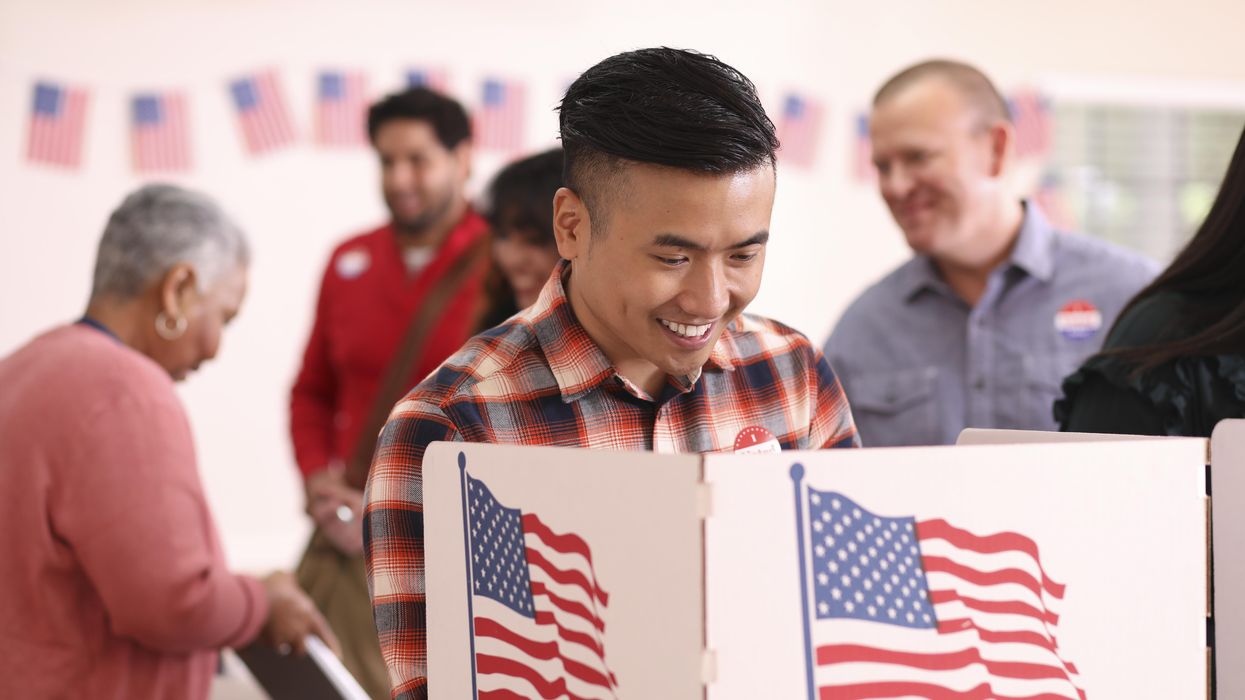Voter turnout was up across the board last year, despite the pandemic's impact on the election, and Asian Americans played a key role in bolstering civic engagement.
An analysis, released last week by the Center for Information and Research on Civic Learning and Engagement at Tufts University, found that young Asian Americans had one of the largest increases in voter participation last year of any racial or ethnic group.
Despite a lack of outreach from political campaigns, young Asian American voters were still highly motivated to turn out at the polls by concerns about the coronavirus and racial injustice, the research found.
Roughly 47 percent of Asian American voters under 30 cast a ballot in last year's election, according to CIRCLE's analysis. This turnout was higher than young Black voters (43 percent), but slightly lower than Latino youth (48 percent). White voters had the highest youth turnout at 61 percent.
When choosing how to vote last year, most Asian youth opted to mail their ballot (46 percent) or return it via drop box (21 percent). The remaining third chose to vote in person either early or on Election Day. Their preference for voting by mail may be tied to population centers: Nearly one-half of all Asian Americans live in the western U.S., where more states proactively mailed voters absentee ballots.
Asian Americans are the fastest growing racial or ethnic group in the United States, according to the Pew Research Center. Over the last two decades, the country's Asian population has nearly doubled to more than 23 million, accounting for 7 percent of the overall population.
As a result, voting rights advocates see Asian Americans as an increasingly crucial voting bloc. Last year, Asian voters of all ages reached a record high turnout of 60 percent.
However, political campaigns for both major parties have continued to miss opportunities to connect with these voters. According to CIRCLE's research, young Asian Americans reported lower levels of contact by political campaigns than any other young people of color.
Just 43 percent of Asian youth reported that they were contacted by Joe Biden's campaign or the Democratic Party ahead of the 2020 election, compared to 61 percent of Black youth, 55 percent of Latino youth and 46 percent of white youth.
Outreach from Donald Trump's campaign or the Republican Party was even more sparse, with just 25 percent of Asian youth reporting contact. In comparison, the GOP reached out to one-third of white, Black and Latino youth voters.
Instead, Asian youth reported higher levels of informal civic engagement among their friends and family members. Despite the diversity of languages spoken by Asian Americans, fewer than 50 counties in the U.S. are required under the Voting Rights Act to provide bilingual voting assistance. So this peer-to-peer outreach "provides an opportunity for young Asian Americans to make a difference in their communities," CIRCLE's report found.




















Marco Rubio is the only adult left in the room